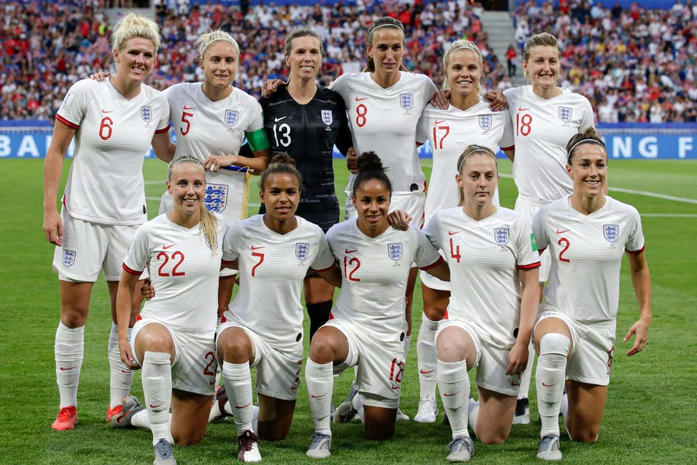
FA Board receives red card over England Lioness led football revolution
THE success of England in the current Women’s World Cup has seen the players become household names but, more importantly, they have caught the imagination of our young people. When modern children and teens look at a poster of England forward Toni Duggan, nowadays they “don’t see a photo of a woman, they [see] an England footballer”. Progress by the England team has seriously melted long-standing previously dominant gender biases and barriers as well as deep-rooted stigmas and stereotypes. It has also provided a huge boost in interest in football generally as well as turbo-charged demand for grass roots participation. Positive football role models – whether the England players themselves or their team management – inspires many of our young people, irrespective of gender.
But this Lioness led top-down and bottom-up football revolution is happening despite the FA Board not because of it, according to ex-referee and corporate governance expert Gerry Brown. Sadly, though the revolution could arguably change so much for the participation, reputation and significance of football on the gender frontlines in England, when it comes to the Football Association Management Team under the leadership of Non-Executive (?!) Chairman Greg Clarke policy and practice continues to proceed at almost glacial pace when it comes to gender, diversity and inclusion.
“While under his leadership Clarke found three FA board places for women during 2018, this in reality was a financially driven rather than gender equality-based decision primarily made to prevent the possible loss of £30million funding under Sport England rules (because a lack of independent directors on FA executive board). Though this ‘oversight’ is now remedied through the appointment of non-execs Kate Tinsley and Stacey Cartwright – they join November 2017 Professional Game Representative appointee Rupinder Bains to take women on the FA Board to three - successful participation in the Women’s World Cup and the revolutionary change in attitudes this spearheads and underlines is not matched off the pitch. When it comes to gender equality, the FA Board remains a long way off parity with men in blazers still making up 70% of the current FA board. Predictably grassroots football remains chronically underfunded and the extremely poor relation to both the professional and amateur game.
Like so many of us, I am sure that Clarke celebrates the significant achievement of this England team in the World Cup as well as the boost to participation and interest these performances create. However, while we may all sing along together in joyous celebration our players (and manager) on a gender-blind basis, serious questions still remain badly unanswered about FA corporate governance in so many areas [2] not least when it comes to the realities of their diversity and inclusion agenda. The odd token gestures aside, business-as-usual might suit the blokes in suits but doesn’t reflect the importance of this recent revolution in attitudes towards and interest in football of all stripes in this country. For our young people this is mostly conducted on a gender blind/neutral basis. Quite how Chairman Clarke and the FA Board will back their self-congratulatory fine words with either rejuvenating investments or concrete actions - at either board or grassroots level - won’t require VAR and is likely to get another straight red card from the football public.
Notes
[1] Sam Haddad: ‘Boys Love these Lionesses too. A football Revolution is coming’ Guardian 02.07.19
[2] Gerry Brown is disappointed to still have to stand by his May 2017 statement that, “Clearly governance questions remain for Football Association Chairman Greg Clarke to address when it comes to gender discrimination and historic child abuse as well as in the organization, funding and participation in women’s football in England at all levels.”
Image credit: Restoration Cake
